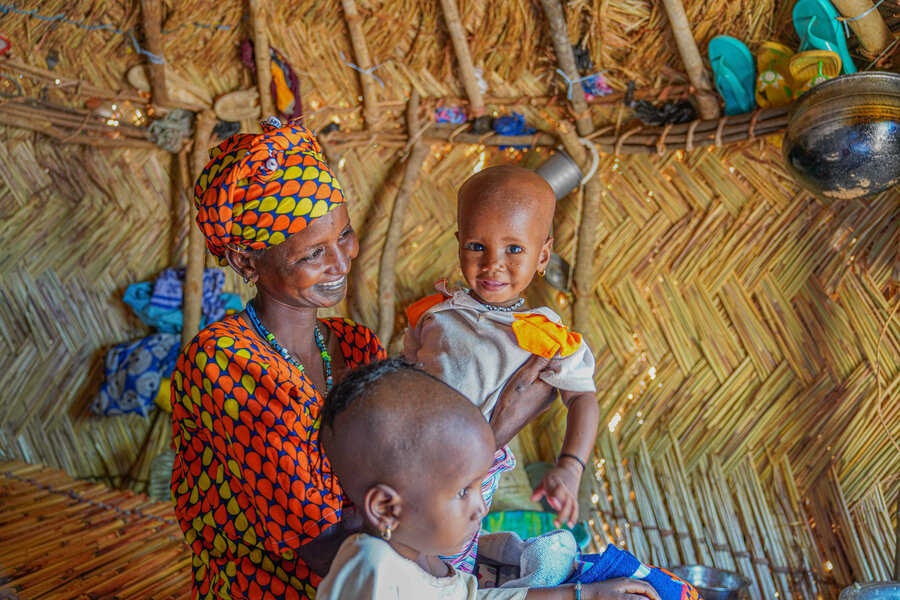
A shy smile lights up Rainatou's face as she talks about her former profession: weaving traditional Fulani mats from her home in northern Burkina Faso. Fellow Burkinabe Koumba is haunted by her abrupt departure from the western part of that country, after armed attackers killed her neighbors in one of many bouts of violence.
Former law student Barkussa was forced to abandon her studies in Burkina Faso's capital Ouagadougou. She now heads a refugee school across the border in Cote d'Ivoire, hundreds of kilometers from home.
All three Burkinabe women - whose last names are being withheld for their protection - have seen their lives upended by the unrest sweeping across their homeland. In recent months, they have joined tens of thousands of others seeking shelter in Côte d'Ivoire and other safer, coastal West African countries.
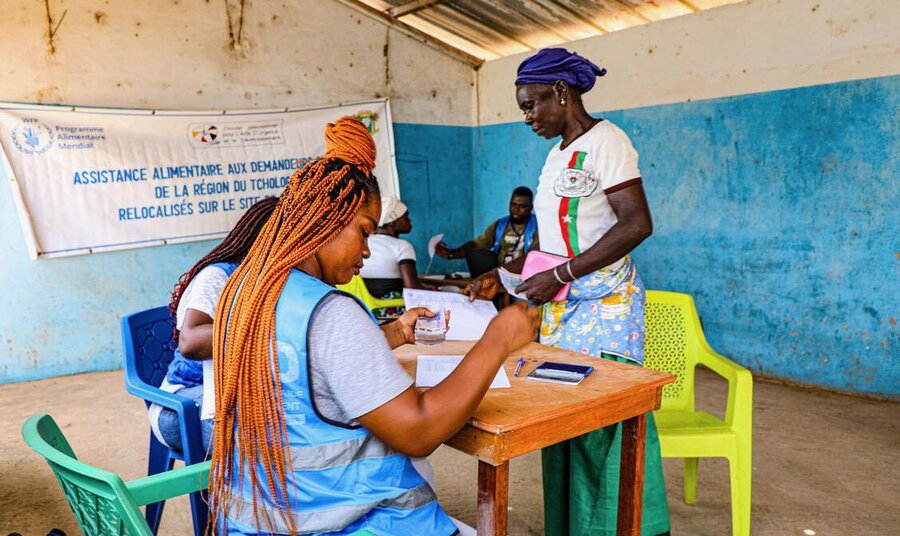
Across a turbulent swath of central Sahel, including Burkina Faso, Mali and Niger, armed violence and rights abuses have displaced millions of people, with no end in sight. Even as asylum seekers are welcomed across the borders, their numbers are straining scarce food supplies, and bumping up already high rates of hunger in Côte d'Ivoire and other coastal West African countries.
Nearly four million people in the area were projected to face food insecurity by this past June - up nearly 19-fold from 2020, according to the latest Cadre Harmonisé expert food security analysis. In the communities hosting the newcomers, more than one-fifth of residents don't have enough food.
But a new US$142 million plan by the World Food Programme (WFP), the United Nations High Commissioner for Refugees (UNHCR), the United Nations Children's Fund (UNICEF) and the International Organization for Migration (IOM) aims to offer a common solution to growing needs.
Endorsed by national authorities and targeting four West African countries in the Gulf of Guinea - Côte d'Ivoire, Ghana, Togo and Benin - it aims to meet the immediate humanitarian needs of more than half-a-million displaced people and asylum seekers, along with local communities who are hosting them. But it also sets longer-term development objectives of building community self-reliance, infrastructure, local economies and social cohesion.
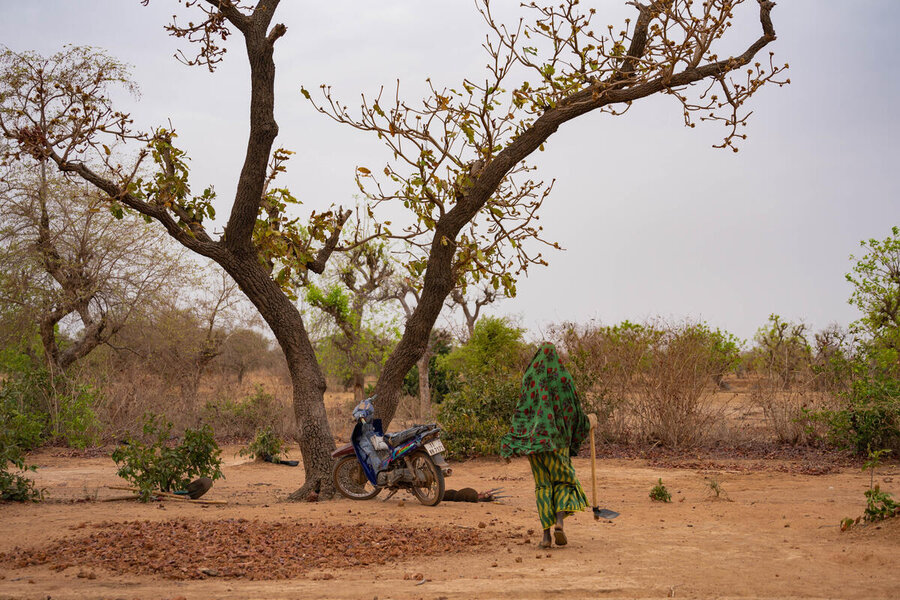
"The precarious situation of thousands of people fleeing violence in the Sahel to West Africa coastal countries could not be ignored. Spillover effects of the Sahel crisis pose a threat to the whole region's stability," says Chris Nikoi, WFP's Regional Director for Western Africa of the joint initiative.
"In this context," he adds, "in addition to emergency assistance, it is critical to strengthen local governance and the resilience of both displaced and host communities to enhance livelihoods and social cohesion."
But insufficient financing already threatens these ambitious goals. Even as the plan rolls out, WFP in Cote d'Ivoire, for one, has been forced halve our assistance to participating refugees for lack of funds.
Rising displacement, rising needs
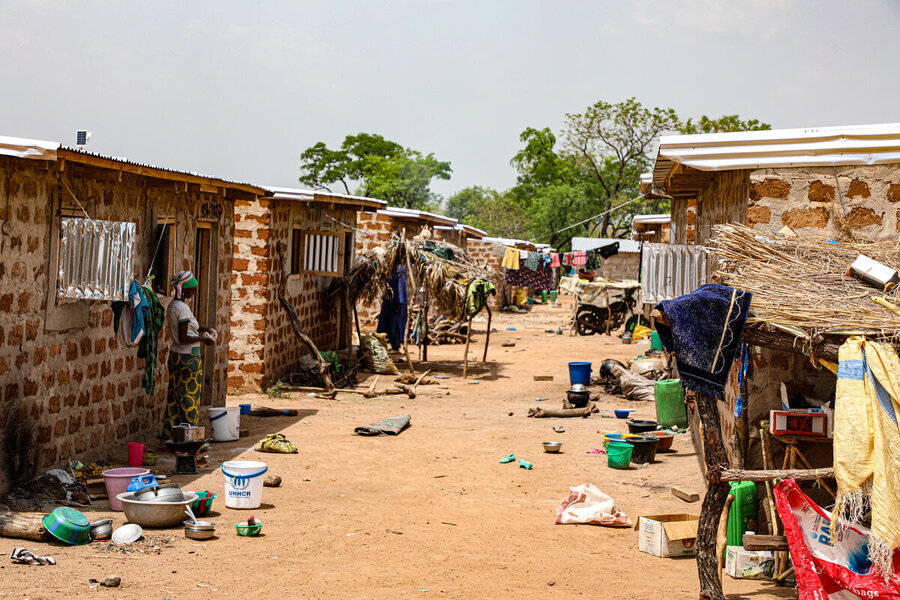
The rising unrest in the Sahel has seen more than 60,000 asylum seekers arriving in Cote d'Ivoire alone. Humanitarians expect thousands more to cross the country's border this year.
Many, like Rainatou, the mat weaver, arrive with barebones belongings and stories of loss. Speaking in her native foulfouldé, she describes fleeing her home in western Burkina Faso, where her husband was a cattle breeder.
"We had to escape the armed men who were ransacking the houses," Rainatou says.
The family of four headed from one town to another in Burkina Faso, seeking shelter and begging for food. Finally, they crossed the border into Côte d'Ivoire, where they were welcomed by local villagers.
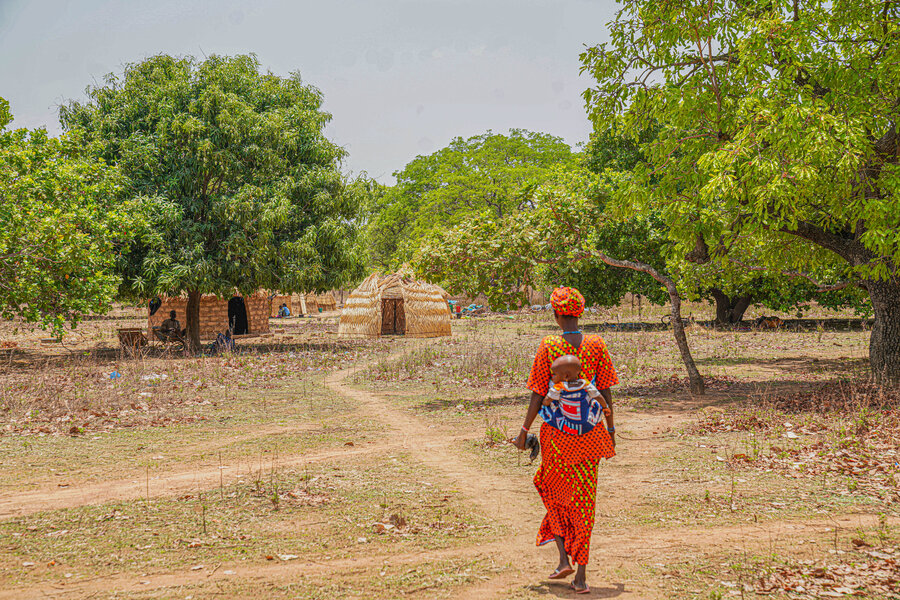
A relative later offered the family a small plot of land in an Ivorian village called Serifresso, where they built a simple home of wood and straw.
"Here, we have found everything is expensive," said Rainatou, as her youngest child, strapped to her back, slept soundly. "Food and even seeds for crops are expensive. The little food we often manage to get is given to us by villagers."
WFP cash assistance - amounting to about US$50 monthly - is helping her family get by.
We are also working closely with Ivorian authorities in rolling out the joint plan, which targets roughly 72,000 asylum seekers and local residents in the country's northern region. Pregnant and nursing women, along with children under five, receive special nutrition support. The plan additionally offers cash assistance to thousands of people - asylum seekers and local residents - participating in projects that build community assets like rainwater harvesting systems, market gardens and irrigation canals.
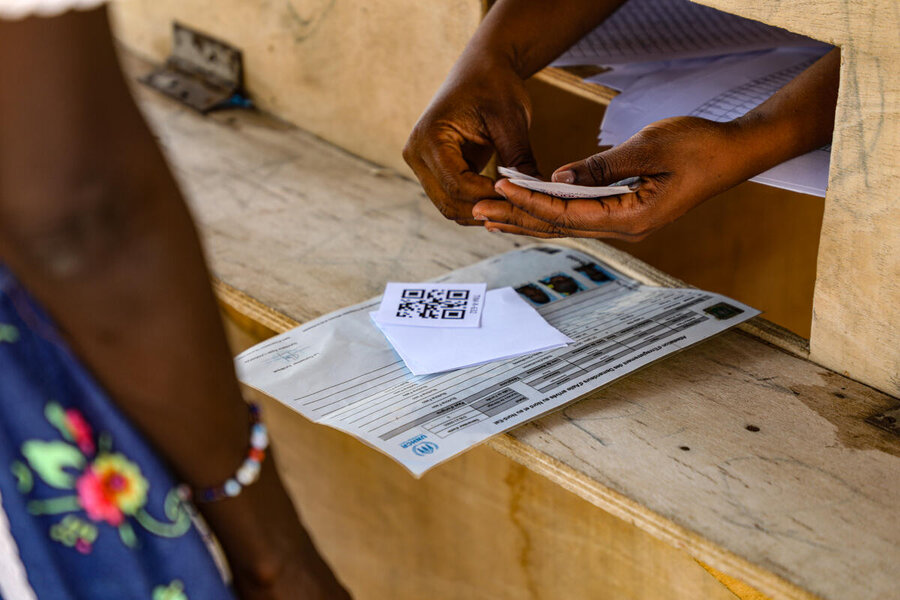
"The integration of both asylum seekers and host communities helps to foster social cohesion," says Olivia Hantz, WFP Country Director in Côte d'Ivoire. "Together with our partners, we strive to create a supportive environment where every individual can find hope and dignity."
Like Rainatou, fellow asylum seeker Koumba also lives in Serifressou, located in Côte d'Ivoire's northeastern Tchologo region. One of four wives of a livestock breeder, she fled western Burkina Faso after assailants attacked and killed the family's neighbors last July.

"Our departure was brutal," Koumba says, describing the collapse of long-laid plans to sell the household cattle and other animals before leaving. "We hid in the bush."
Nonetheless, the wives were able to escape with enough savings to make the journey to safety in Côte d'Ivoire. Today, Koumba counts among more than 22,000 people in the area receiving WFP monthly cash assistance- amounting today, in her case, to roughly US$8 a month - a slender but crucial lifeline.
Back to school
In Côte d'Ivoire's nearby Bounkani region, former law student Barkussa has also found a new life. She left her studies in Ouagadougou last August, following her husband in crossing the border.
"Armed groups were looking for men" to recruit, she says, explaining their flight.
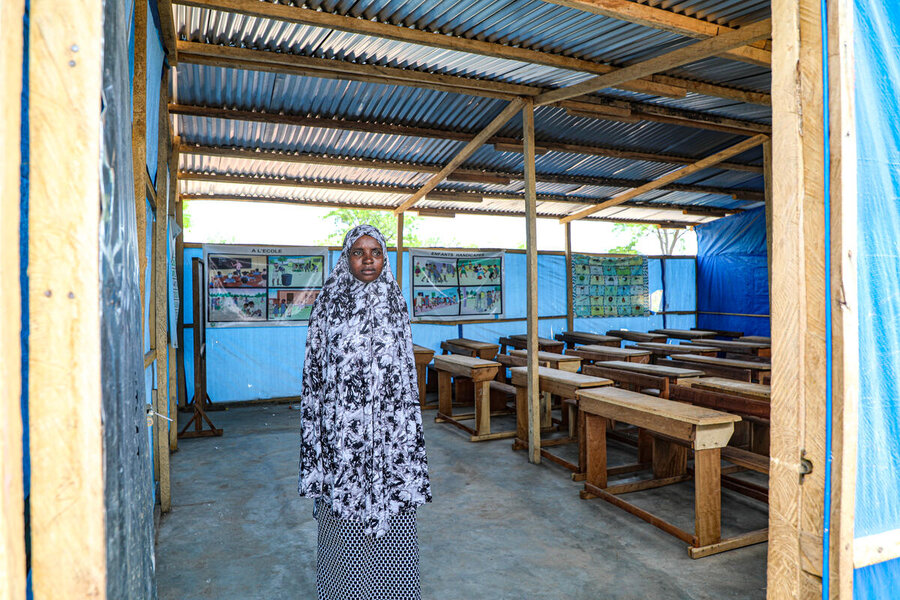
Today, Barkussa supervises 1,200 students and a dozen teachers at two refugee schools at an Ivorian transit site, near the border with Burkina Faso. Students receive nutritious WFP meals along with an education.
"I follow a programme, watch after my colleagues and school children, and do all the administrative papers," Barkussa says of her new job.
She is grateful to be working - but life is hard. "Days in the camp are all the same," Burkassa says. "In Burkina Faso, at least we had space."
Lack of funds has forced WFP Côte d'Ivoire to halve our assistance to refugees participating in the joint Sahel response plan. We need an estimated US$22 million to deliver the food and nutritional needs, along with early recovery efforts, to the most vulnerable refugees in the country over the next year.






